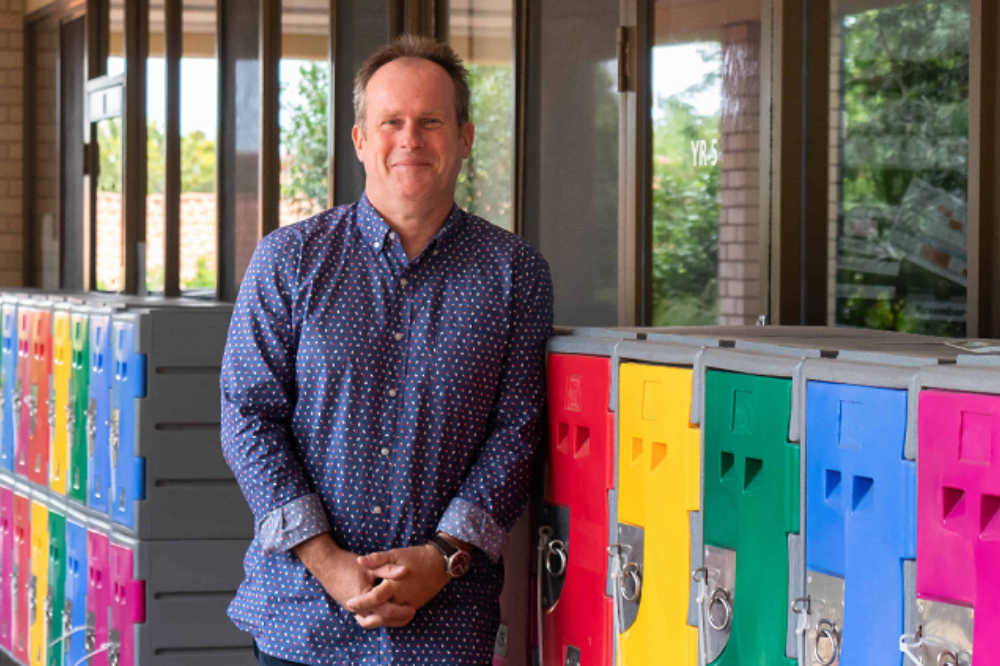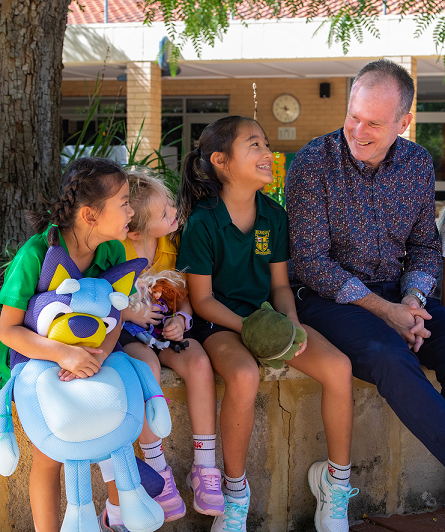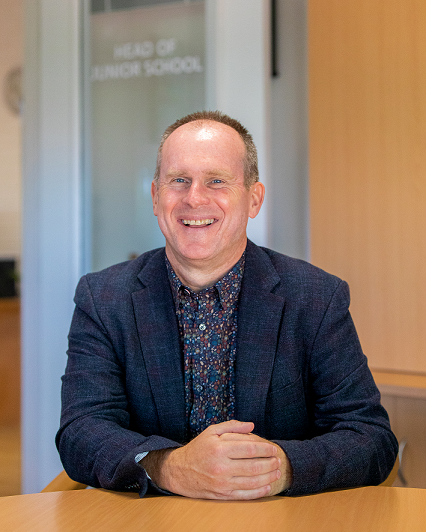
Wayne Revitt had barely started to settle into his new role as Head of Penrhos College’s Junior School in Perth when the Covid-19 pandemic struck, upending the usual rhythms of the school day and causing untold disruption for his students and staff.
Virtually overnight, the Junior School’s teachers found themselves treading unfamiliar waters as they sought to teach, look after, and reassure hundreds of young girls in Years 3-6 whose school experience was about to look very different. Indeed, this was a profound test of resilience and adaptability like no other the College had experienced in its 68-year history.
This massively disruptive and uncertain period for the College called for a leader with steely resolve and a steady hand, and an innovative mindset. Even before the pandemic hit, it was clear Revitt had the credentials to rise to this challenge.
Despite the seemingly insurmountable challenges before him, Revitt was cautiously optimistic. His 18 years of experience working in various settings within the independent school sectors had laid the foundation for the leadership approach he would use to guide the Junior School through this tumultuous time.
“The key here was listening to the feedback from our families and adjusting our approach accordingly,” Revitt told The Educator. “We were fortunate in Western Australia, in that our lockdown periods were brief. We soon discovered, however, that the initial enthusiasm from parents for a full school day at home soon changed after a taste of home schooling.”
Revitt said staff at the Junior School were then able to change their experiences quickly to be more flexible and less onerous on families.
Instrumental in driving this change was strong professional support – something Revitt had both delivered and strongly advocated during his roles as President of the Independent Primary School Heads of Australia (IPSHA) WA and inaugural Vice-Chair of the Positive Education Schools Association (PESA) WA Branch.
When asked how these roles have influenced his leadership style and approach, Revitt pointed to the value gained from the collegiality and support from his peers.
“The post-pandemic gatherings for IPSHA were proof of this; our National Conference in Adelaide last year had a record number of attendees, all clearly stating how much they had missed sharing experiences, first-hand, with each other,” he said.
“While we knew the value of positive relationships prior to the pandemic, the benefit of a caring, empathetic colleague and a supportive network has cemented our ongoing work in providing opportunities to simply get together and learn from each other, with gratitude.”

A culture grounded in positive psychology
Revitt said a key ingredient to the College’s success has been the development of a Learner Profile that “values being caring and courageous, just as much as being knowledgeable and open minded”.
“We are embracing an approach to wellbeing that is an integral part of our culture around teaching and learning – they are one, and the same,” Revitt said.
“One of the great joys of my work is being able to observe our new students come to Penrhos and flourish so quickly. I can’t overstate the value of our dedicated, caring staff in providing such an enjoyable, stimulating and rewarding learning environment.”
Revitt said cultivating a nurturing environment at the College goes beyond merely facilitating academic performance.
“With the right love and care, we feel secure – and when we feel safe and secure, any anxiety can fade and enable our executive functioning to flow; so that our working memory, problem solving ability and creativity can develop to our full potential,” he said.
“It is this approach we believe has led to Penrhos College being shortlisted as an excellence awardee for the Australian Education Awards 2023, in the category Primary School of the Year [Non-Government].”

Shaping a generation of empowered problem-solvers
Looking ahead, Revitt said the Junior School’s vision for the next 5-10 years is not only to ready each child for Secondary School, but to ensure students are ready for the world.
“We build strong young women, with a positive mindset, compassion for others and the motivation to make the world a better place for all. This is the strength of Penrhos. Our students don’t go under the radar,” Revitt said.
“Their sense of self is formed in the crucial pre-adolescent years, where our students are encouraged to voice their ideas; to raise their hands and speak up. To be curious and to question; to not only solve problems; but identify problems in the first place.”
While acknowledging there will be significant challenges that this generation will need to face, Revitt said the Junior School is countering these with a holistic approach to education.
“This includes an ongoing strong, and rigorous, academic program. But more than ever we are focusing on attributes that can be taught outside of traditional thinking in education; being a balanced thinker, being caring, being a risk-taker,” he said.
“We know from our early learning experts that we need to honour the curiosity and wonder our little people display.”
In May, Penrhos College Junior School was named one of seven finalists for the Primary School of the Year – Non-government Award. The Australian Education Awards will be held 11 August at the Fullerton Hotel in Sydney.


